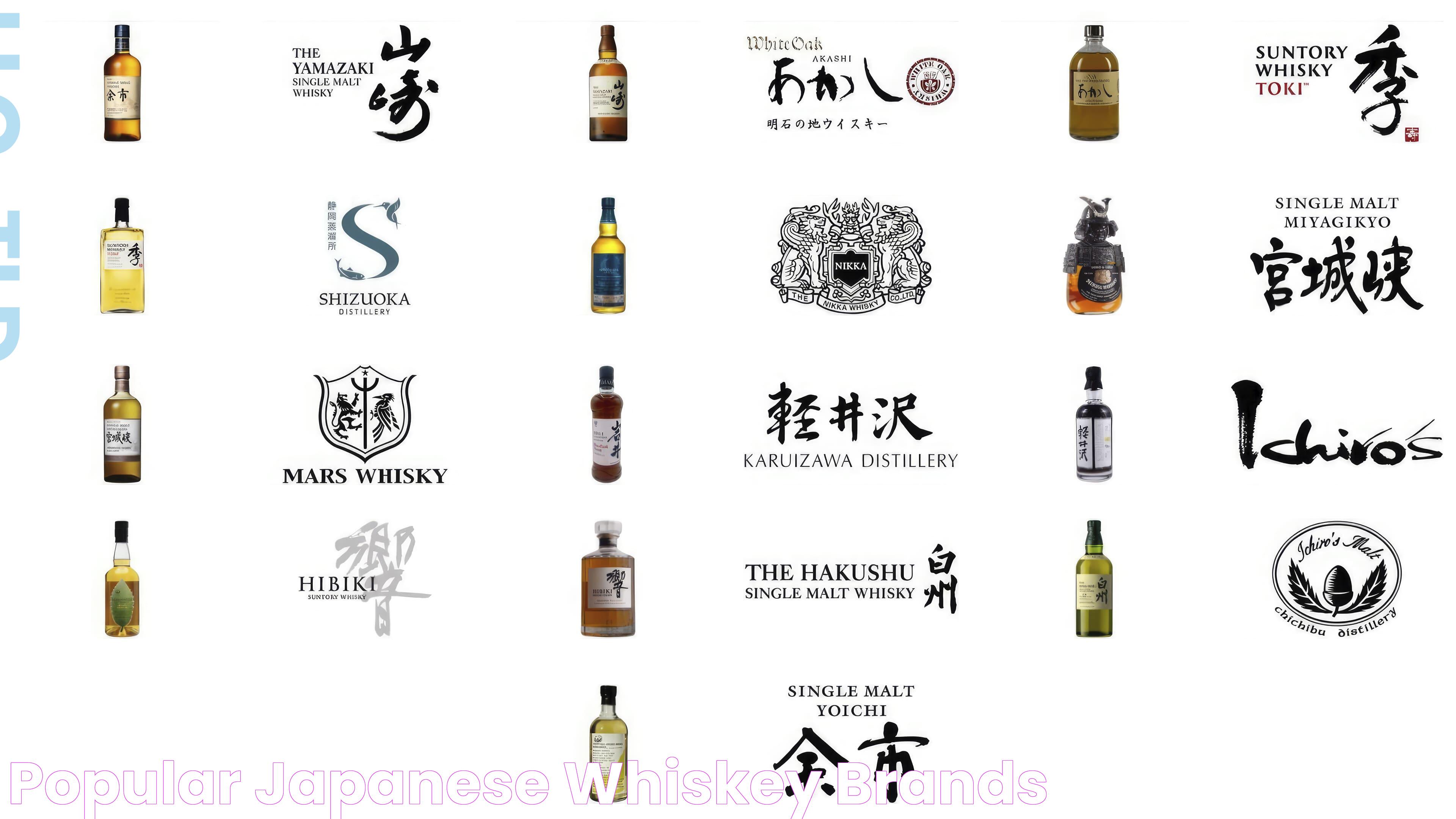Japanese whiskey has carved a unique niche in the global spirits market, earning accolades for its impeccable quality, intricate craftsmanship, and rich history. With its origins dating back to the early 20th century, Japanese whiskey has grown into a symbol of precision, innovation, and tradition. Combining Scottish techniques with Japanese artistry, this spirit reflects the soul of Japan, delivering a sensory experience that is both profound and unforgettable.
The journey of Japanese whiskey is a tale of passion, perseverance, and a relentless pursuit of perfection. From its humble beginnings to its recognition as one of the finest whiskeys in the world, Japan's whiskey-making heritage is a testament to the nation's dedication to excellence. Each bottle tells a story, capturing the essence of the country's culture, climate, and craftsmanship. Whether you're a seasoned connoisseur or a curious enthusiast, delving into the history and artistry of Japanese whiskey is an enriching experience.
In this comprehensive article, we will explore the multifaceted world of Japanese whiskey, from its historical roots to its modern-day triumphs. We'll take a closer look at iconic brands, unravel the secrets of their brewing techniques, and understand the factors that make Japanese whiskey a global phenomenon. Along the way, you'll also discover how this spirit reflects the cultural values and traditions that define Japan. So pour yourself a glass and join us as we dive into the timeless craftsmanship of Japanese whiskey brands.
Read also:The Enduring Legacy Of Shirley Jones A Noted Actress Who Defined Generations
Table of Contents
- History and Origins of Japanese Whiskey
- What Makes Japanese Whiskey Unique?
- The Influence of Climate and Terroir
- Top Japanese Whiskey Brands
- Yamazaki: The Pioneer
- Nikka Whiskey: A Legacy of Passion
- Hibiki: The Harmony of Whiskey
- How Is Japanese Whiskey Made?
- What Are the Different Types of Japanese Whiskey?
- Pairing Japanese Whiskey with Food
- How to Enjoy Japanese Whiskey?
- How Has Japanese Whiskey Gained Global Recognition?
- Frequently Asked Questions
- Conclusion
History and Origins of Japanese Whiskey
The history of Japanese whiskey began in the early 20th century, inspired by Scotland's rich whiskey-making tradition. The first distillery, Yamazaki, was founded in 1923 by Shinjiro Torii, who is widely regarded as the father of Japanese whiskey. Torii's vision was to create a whiskey that would suit the delicate palate of the Japanese people while retaining the authenticity of Scottish whiskey-making techniques.
Masataka Taketsuru, another pivotal figure in Japanese whiskey history, brought his knowledge and expertise from Scotland to Japan. Taketsuru studied the art of whiskey making in Scotland and later collaborated with Torii to establish the foundations of Japanese whiskey. In 1934, Taketsuru went on to found Nikka Whisky, further cementing his legacy in the industry.
During the mid-20th century, Japanese whiskey remained relatively unknown outside its borders. However, its quality and uniqueness began to attract international attention in the 21st century, leading to a surge in demand and recognition. Today, Japanese whiskey is celebrated as a world-class spirit, with several brands winning prestigious awards globally.
What Makes Japanese Whiskey Unique?
Japanese whiskey stands out for its meticulous craftsmanship, attention to detail, and a deep understanding of flavor profiles. Unlike other whiskey-producing nations, Japanese distilleries often use a wide variety of still shapes, fermentation techniques, and barrel types to create complex and nuanced flavors.
Is Japanese Whiskey Inspired by Scotland?
Yes, Japanese whiskey owes much of its origins to Scottish whiskey-making traditions. However, Japanese distillers have adapted these methods to create a distinct style that reflects Japan's climate, culture, and preferences. For instance, Japanese whiskey often incorporates Mizunara oak barrels, which impart unique flavors like sandalwood and incense.
Why Are Japanese Whiskeys So Smooth?
The smoothness of Japanese whiskey can be attributed to the country's pure water sources, precise distillation techniques, and the blending expertise of master distillers. The result is a balanced and refined spirit that appeals to a wide range of palates.
Read also:David Muirs Wedding Bliss A Pictureperfect Day Worth Celebrating
The Influence of Climate and Terroir
Japan's diverse climate and geographical features play a significant role in shaping the character of its whiskey. The country's hot summers and cold winters create ideal conditions for aging whiskey, allowing it to mature faster and develop complex flavors.
Additionally, the high-quality water used in Japanese whiskey production contributes to its purity and smoothness. Many distilleries are located near pristine water sources, ensuring that only the finest water is used in the process.
Top Japanese Whiskey Brands
Japanese whiskey is synonymous with excellence, and several brands have risen to prominence for their exceptional quality and innovation. Let's take a closer look at some of the most iconic Japanese whiskey brands:
Yamazaki: The Pioneer
Yamazaki, Japan's first whiskey distillery, is renowned for its rich history and groundbreaking contributions to the industry. Established in 1923 by Shinjiro Torii, Yamazaki has consistently produced award-winning whiskeys that exemplify Japanese craftsmanship.
Nikka Whiskey: A Legacy of Passion
Founded by Masataka Taketsuru in 1934, Nikka Whiskey is celebrated for its bold flavors and innovative techniques. The brand operates two distilleries, Yoichi and Miyagikyo, each offering unique expressions of Japanese whiskey.
Hibiki: The Harmony of Whiskey
Hibiki, a blend of malt and grain whiskeys, embodies the art of Japanese blending. Known for its harmonious flavor profiles and elegant presentation, Hibiki has become a symbol of Japan's whiskey-making expertise.
How Is Japanese Whiskey Made?
The production of Japanese whiskey involves several intricate steps, each contributing to its exceptional quality. The process begins with malting and mashing, followed by fermentation, distillation, aging, and blending. Japanese distilleries often experiment with different ingredients and techniques to achieve unique flavors.
What Are the Different Types of Japanese Whiskey?
Japanese whiskey can be broadly categorized into single malt, blended, and grain whiskeys. Each type offers distinct characteristics and flavor profiles, catering to diverse preferences.
Pairing Japanese Whiskey with Food
Japanese whiskey pairs wonderfully with a variety of dishes, from sushi and sashimi to grilled meats and desserts. The spirit's versatility allows it to complement both traditional Japanese cuisine and international flavors.
How to Enjoy Japanese Whiskey?
There are several ways to enjoy Japanese whiskey, depending on your preference. You can savor it neat, on the rocks, or as part of a cocktail. Experimenting with different serving styles can help you discover the nuances of each blend.
How Has Japanese Whiskey Gained Global Recognition?
Japanese whiskey's rise to global fame can be attributed to its consistent quality, innovative techniques, and numerous accolades. The spirit has won prestigious awards at international competitions, cementing Japan's reputation as a world-class whiskey producer.
Frequently Asked Questions
1. What is the best way to store Japanese whiskey?
Store Japanese whiskey in a cool, dark place away from direct sunlight and temperature fluctuations. Ensure the bottle is tightly sealed to preserve its flavors.
2. Are Japanese whiskeys expensive?
Japanese whiskeys range in price, from affordable options for casual drinkers to premium bottles for collectors. The cost often reflects the quality and rarity of the whiskey.
3. Can I visit Japanese whiskey distilleries?
Yes, many Japanese distilleries offer tours where visitors can learn about the production process and sample their whiskeys. Popular distilleries include Yamazaki, Nikka, and Hakushu.
4. What makes Mizunara oak barrels special?
Mizunara oak barrels are unique to Japan and impart distinctive flavors such as sandalwood, coconut, and incense to the whiskey, enhancing its complexity.
5. How long does Japanese whiskey typically age?
Japanese whiskeys can age anywhere from a few years to several decades. The aging period depends on the desired flavor profile and the distillery's practices.
6. Is Japanese whiskey regulated by specific standards?
In 2021, Japan introduced new labeling standards to ensure authenticity and transparency in Japanese whiskey production. These regulations aim to maintain the spirit's high quality and reputation.
Conclusion
Japanese whiskey is a testament to the nation's dedication to craftsmanship, tradition, and innovation. With its rich history, exceptional quality, and global acclaim, Japanese whiskey has become a cherished symbol of Japan's cultural heritage. Whether you're an enthusiast or a newcomer, exploring the world of Japanese whiskey is an experience that promises to delight and inspire. Raise a glass to this timeless spirit and savor the artistry that goes into every bottle.

